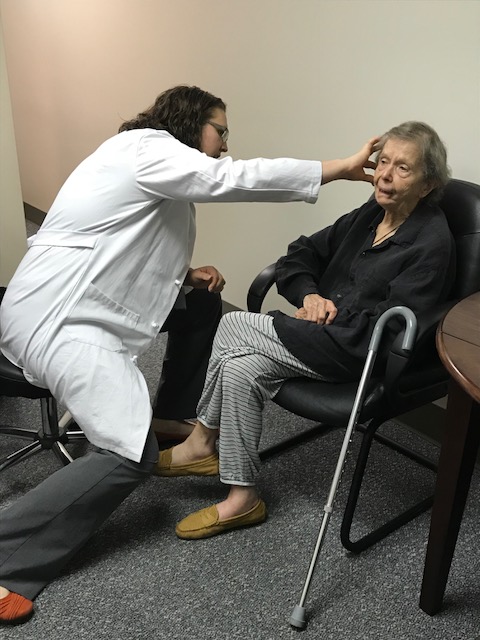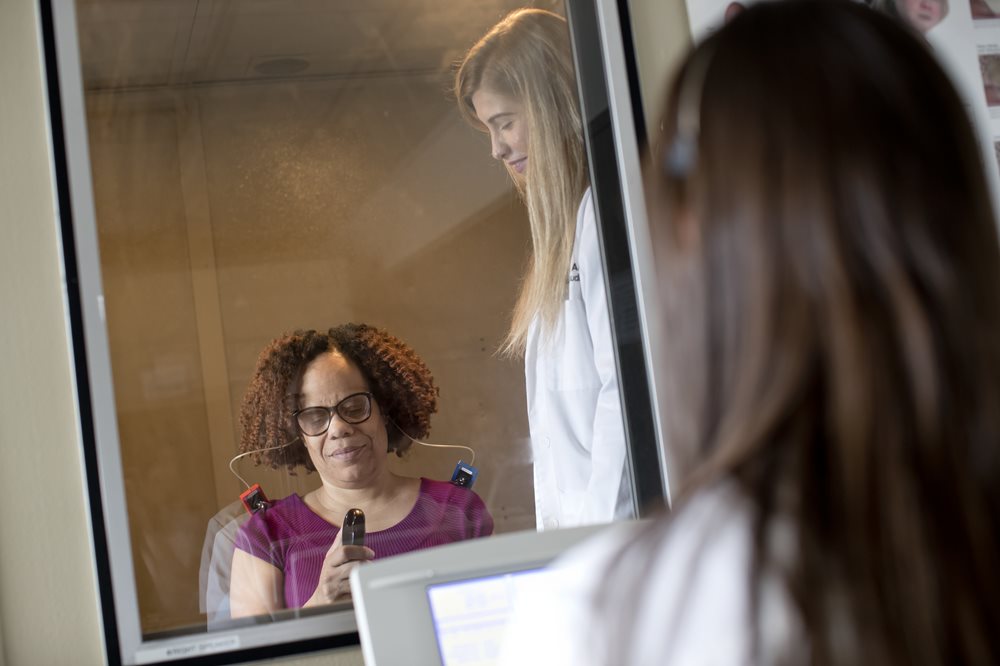Hearing Loss and Alzheimer’s

June is National Alzheimer’s and Brain Awareness Month. According to the Alzheimer’s Association, worldwide, 50 million people are living with Alzheimer's and other dementias. What you might not know is Alzheimer’s is connected to something that affects 48 million Americans – hearing loss.
About one in three people in the United States between the ages of 65 and 74 has hearing loss, according to the National Institutes of Health. A study in the American Journal of Public Health found about two-thirds of adults ages 70 or older suffer from hearing impairment that may affect daily communication.
Recent findings also suggest hearing loss may play a much more important role in brain health than previously thought. Studies at Johns Hopkins found that people with hearing loss were 24% more likely to have Alzheimer’s. In another study, they found that the worse the hearing loss, the more likely the person was to develop dementia. Although the studies don’t suggest that hearing loss itself causes dementia, it does show there’s a link between the two.
Researchers say one reason may be that the particular part of your brain in charge of hearing may simply start to work differently with hearing loss. Our brain is what makes us understand sounds. Since your brain rewires itself to compensate for the loss of hearing, it takes away from your ability to retain information. This potentially could lead to dementia, as well as a higher risk of Alzheimer’s.
Social isolation also plays a part. When it’s hard to hear, it becomes harder to maintain social connections. When you have to struggle to converse, you're less likely to want to socialize in groups or go out to restaurants. And being socially isolated has been recognized as a risk factor for cognitive decline and dementia.
 Hearing loss doesn’t mean you or a loved one will develop Alzheimer’s. Many people begin to have trouble hearing in their senior years and manage to live without experiencing dementia. But the link does suggest that if we can do something to minimize hearing loss, there’s a chance that we can also minimize the possibility of getting Alzheimer’s.
Hearing loss doesn’t mean you or a loved one will develop Alzheimer’s. Many people begin to have trouble hearing in their senior years and manage to live without experiencing dementia. But the link does suggest that if we can do something to minimize hearing loss, there’s a chance that we can also minimize the possibility of getting Alzheimer’s.
Anyone experiencing hearing loss should get checked and treated. Not only will it make it much easier to communicate with friends and loved ones and continue to participate in the many everyday activities that require hearing, but it could help avoid or delay the onset of Alzheimer’s.
If you suspect that you may have some degree of hearing loss, contact the Pennsylvania Ear Institute. Our expert audiologists will assess your hearing and make recommendations on how to address your hearing needs.